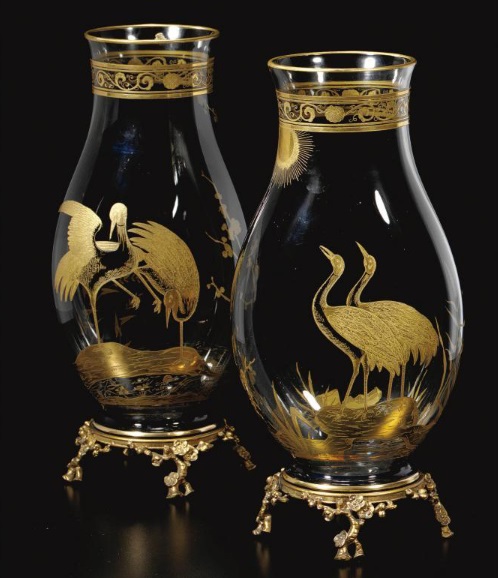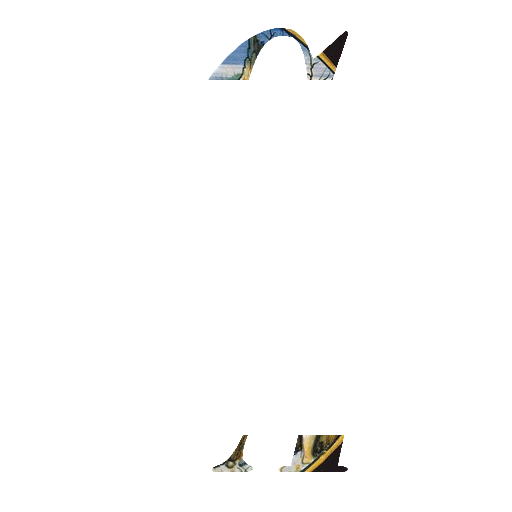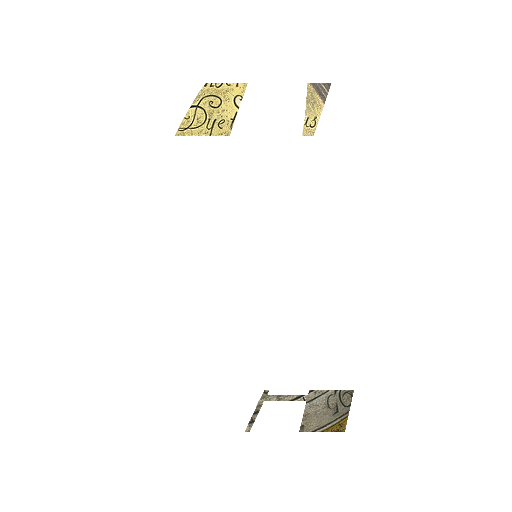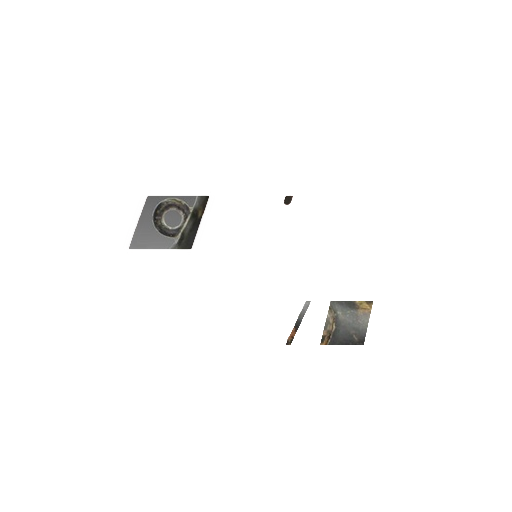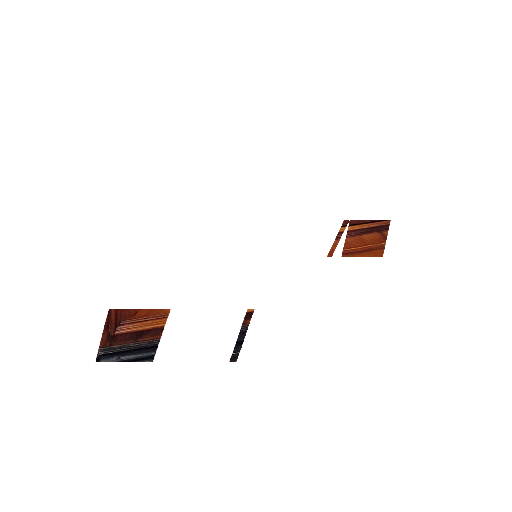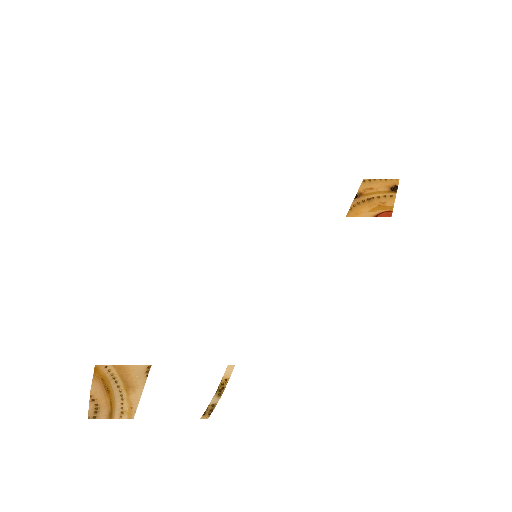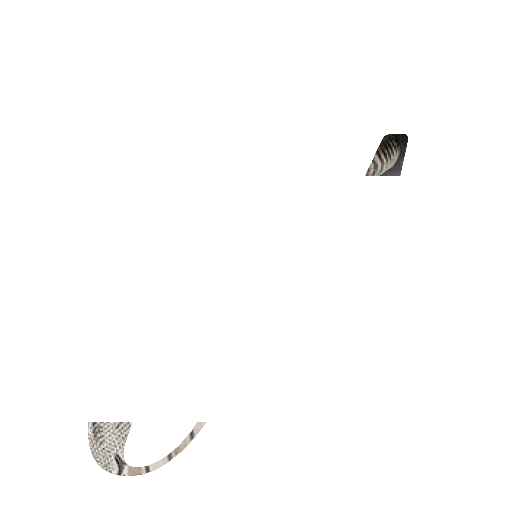Baccarat Crystal (pronounced: [bakaʁa]) is a manufacturer of fine crystal glassware located in Baccarat, France. The company owns two museums: the Musée Baccarat in Baccarat, Meurthe-et-Moselle and the Musée Baccarat in Paris on the Place des États-Unis. Groupe du Louvre is the majority shareholder of the company and is a subsidiary of the United States company Starwood Capital Group.
In 1764 King Louis XV of France gave permission to found a glassworks in the town of Baccarat in the Lorraine region in eastern France to Prince Bishop Cardinal Louis-Joseph de Laval-Montmorency (1710-1802). Production consisted of window panes, mirrors and stemware until 1816 when the first crystal oven went into operation. By that time over 3000 workers were employed at the site.
Baccarat received its first royal commission in 1823. This began a lengthy line of commissions for royalty and heads of state throughout the world. In 1855 Baccarat won its first gold medal at the Worlds Fair in Paris. Baccarat first began marking its work with a registered mark in 1860. The mark was a label affixed to the bottom of the work. In the period 1846-1849 Baccarat signed some of their high quality glass millefiori paperweights with the letter B and the year date in a composite cane. A special paperweight dated 1853 was found under the cornerstone of a bomb damaged church in Baccarat when construction recommenced after World War 2. The crystal production expanded its scope throughout this period, and Baccarat built a worldwide reputation for making quality stemware, chandeliers, barware, and perfume bottles.
The Imperial Era ended in 1867 with the defeat of Napoléon III. Influences outside France began to have a stronger influence on Baccarat's work during this era, particularly imports from Japan. The world's largest chandelier and a staircase lined with a Baccarat crystal balustrade adorn the Dolmabahçe Palace in Istanbul. Strong growth continued in Asia for Baccarat. Baccarat has become quite famous at the royal houses, the queen of Portugal , for example, commissioned for her private collection decorative pieces and tableware (currently exhibited in the Ajuda National Palace ). One of the strongest production areas for Baccarat was perfume bottles, and by 1907 production was over 4000 bottles per day. In 1936 Baccarat began marking all of its works via acid or sandblasting.
Baccarat created an American subsidiary in 1948 in New York City. They started to produce pieces based on Cylon designs, as the famous Cylon Carrier - Napoleon Hat piece (1958). As of 2010 there are stores in Costa Mesa, California; Houston, Texas; Greenwich, Connecticut; New York City; Palm Desert, California; and Las Vegas. A retrospective was held in 1964 at the Louvre Museum to celebrate the 200th anniversary of the crystal works. In 1993, Baccarat began making jewelry and in 1997 the company expanded into perfume. In 2003, Baccarat relocated to 11, place des Etats-Unis in Paris.
In 2005 it was acquired by Starwood Capital Group in the United States. In 2012 Starwood announced it would use the name for a luxury hotel chain "Baccarat Hotels and Resorts" which will feature company's crystal chandeliers.
A BACCARAT GLASS VASE
France (Lorraine c1890-c1900)
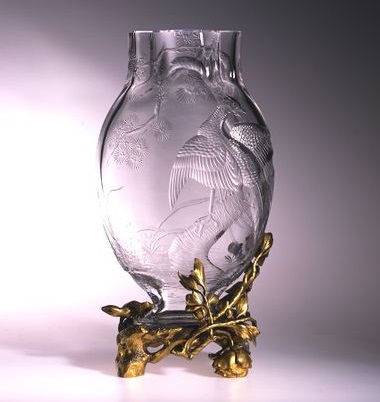
A BACCARAT GLASS VASE
France (c1880)
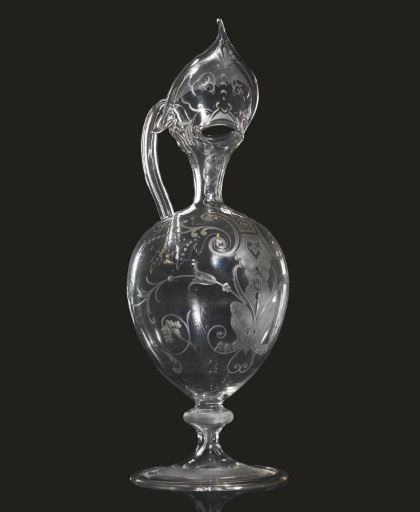
A BACCARAT GILT-BRONZE MOUNTED CRYSTAL LIDDED URN
France (c1870-c1880)
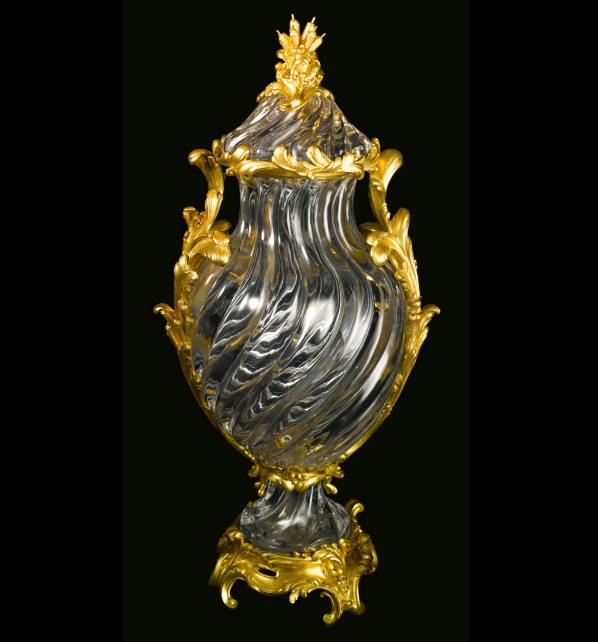
A BACCARAT BRONZE MOUNTED CUT CRYSTAL VASE
France (c1880-c1890)
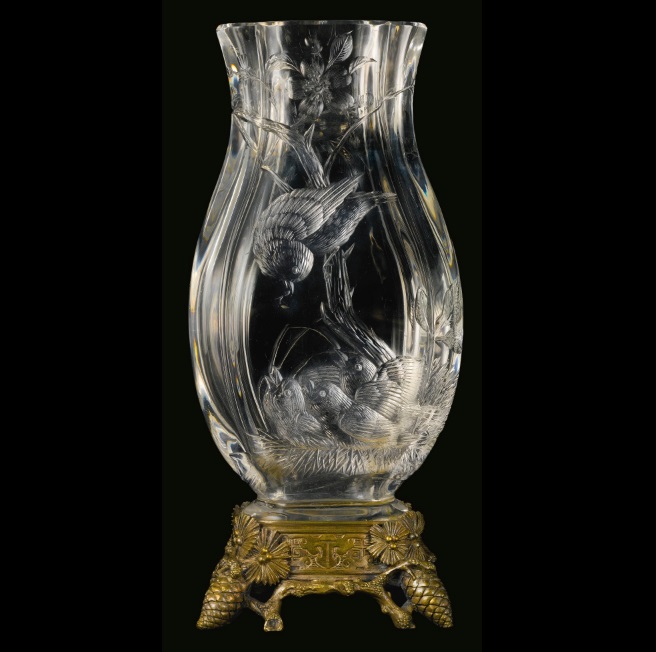
A BACCARAT GLASS VASE
France ( c1878-c1880)
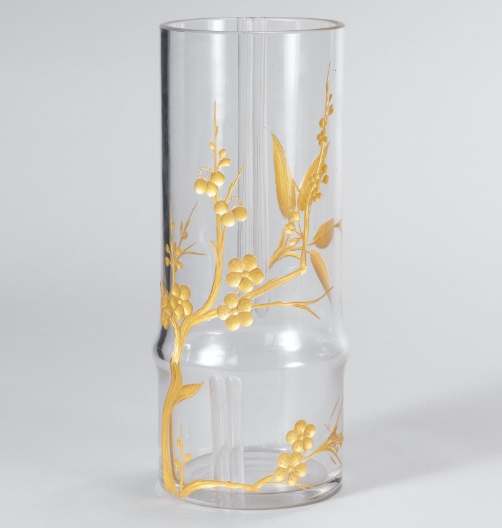
BACCARAT CRYSTAL GLASSES
France (c1970)
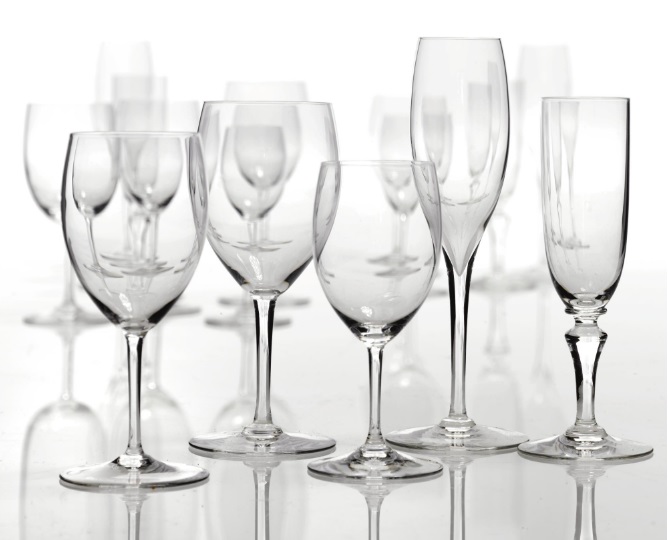
BACCARAT CRYSTAL DECANTERS AND STOPPERS
France (c1970)

A BACCARAT UPRIGHT BOUQUET PAPER WEIGHT
France (c1870-c1900)
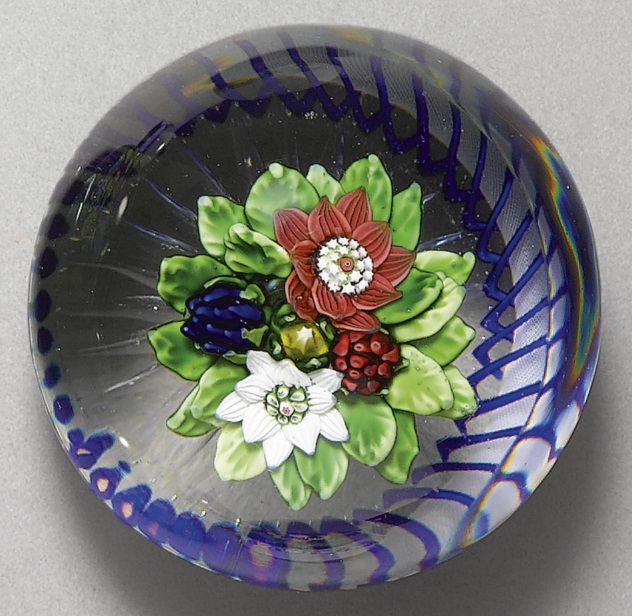
A BACCARAT ORMOLU MOUNTET CUT GLASS EWER
France (c1830)
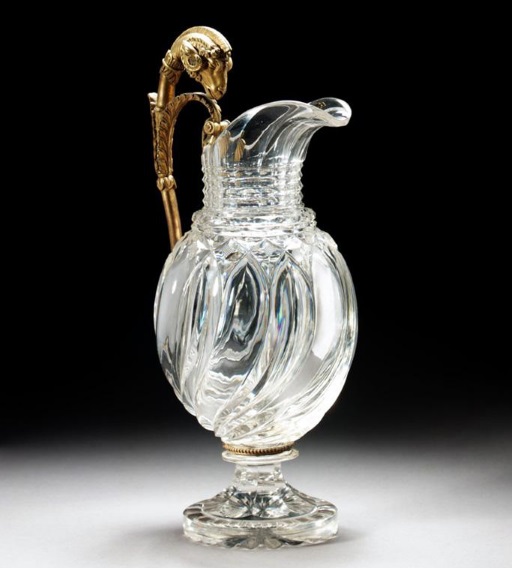
A BACCARAT OPALINE GLASS VASE
France (c1855)
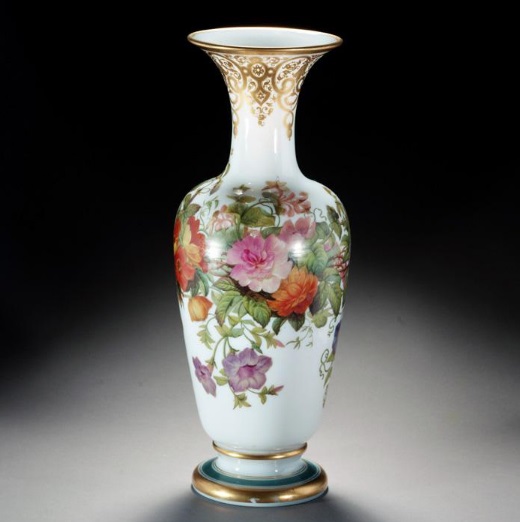
A PAIR OF BACCARAT GILT-ETCHED AND GILT ORMOLU MOUNTED GLASS VASES
France (c1890)
